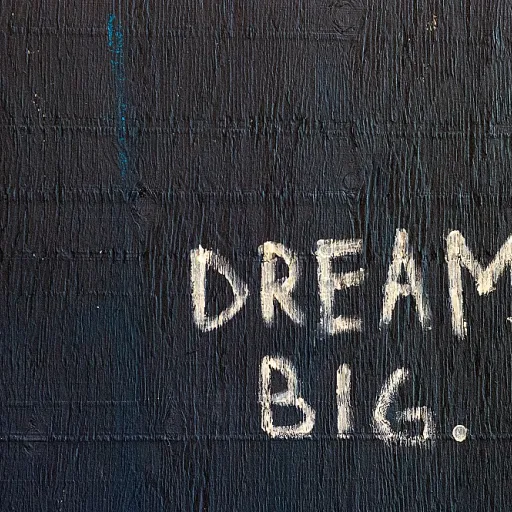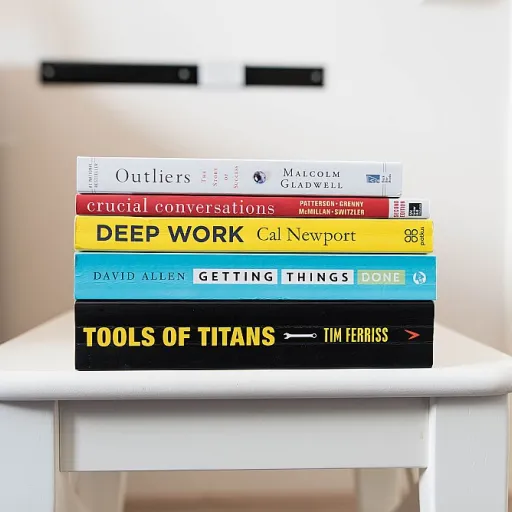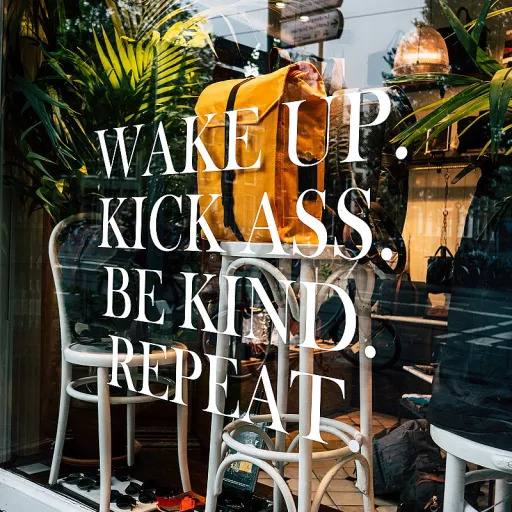
Understanding the landscape of career fairs in Connecticut
Exploring Connecticut’s Dynamic Career Fair Scene
Connecticut’s job market is shaped by a diverse range of career fairs, each offering unique opportunities for job seekers. Whether you’re looking for a full time position, a time internship, or a role in human services, the state’s events calendar is packed with options throughout the year. From the fall career fairs in October and November to spring career sessions, these events are hosted by universities, local business groups, and organizations like the American Job Center and chambers of commerce.
Career fairs in Connecticut take place in various settings, including public libraries, university campuses, and community centers. For example, Hartford Public Library and East Hartford locations frequently host job fairs, while Connecticut State University and other higher education institutions organize large-scale events for students and alumni. Virtual career fairs have also become more common, providing access to employers and job opportunities without geographic limitations.
- Industry focus: Events often target specific sectors such as health services, business, and access health, or offer a broad range of employers from different fields.
- Timing: Major fairs are typically held in the fall (October, November) and spring, but smaller sessions may occur year-round.
- Locations: Look for events in Hartford, East Hartford, and other Connecticut cities, as well as online platforms.
- Types of roles: Opportunities range from entry-level jobs to full time positions and internships.
Attending a career fair in Connecticut is more than just handing out resumes. It’s a chance to connect directly with employers, learn about current openings, and get a feel for the local job market. If you’re interested in how job fairs work in other regions, read this guide on what to expect at a job fair in Fort Lauderdale for additional perspective.
Understanding the landscape is the first step. Next, you’ll want to prepare strategically for these events to make the most of your time and stand out to employers.
Preparing for a career fair: what job seekers need to know
Getting Ready for a Successful Career Fair
Attending a career fair in Connecticut, whether in October or November, can be a pivotal step in your job search. Preparation is key to making the most of these events, especially with so many employers from sectors like health, business, human services, and commerce present. Here’s how you can set yourself up for success:- Research the event: Before the fair, read up on which employers will be attending. Many fairs, such as those at Connecticut State University or local job centers, publish a list of participating organizations. This helps you prioritize your time and focus on employers that align with your career goals.
- Update your resume: Bring multiple copies of your resume tailored to the types of roles you’re seeking, whether it’s a full-time job, time internship, or a position in human services or access health. Consider having both digital and printed versions, especially for virtual and in-person events.
- Prepare your pitch: Practice a brief introduction that highlights your skills, experience, and what you’re looking for. This will help you make a strong impression, whether you’re at a fall career fair in East Hartford or a spring career session in Hartford public spaces.
- Dress appropriately: Even if the fair is virtual, professional attire shows you care about the opportunity. For in-person events at venues like the public library or commerce center, business casual is usually a safe choice.
- Plan your questions: Employers appreciate candidates who show genuine interest. Prepare thoughtful questions about the company, available jobs, and the hiring process. This is especially important at large events like the Hartford time job fair or American job fairs.
- Organize your schedule: Many fairs, such as those held on a Wednesday in the fall, have packed agendas. Review the event schedule and prioritize sessions or employer booths that are most relevant to your career path.
What to Bring and What to Expect
- Copies of your resume (digital and print)
- A notepad or device for taking notes
- A list of target employers and questions
- Business cards, if available
- An open mind to explore roles in sectors you may not have considered, like public health or services
Navigating the event: making the most of your time
Maximizing Every Minute at the Fair
Attending a career fair in Connecticut, whether it’s a fall career event in East Hartford or a virtual session in November, is all about using your time wisely. With dozens of employers from sectors like health, business, human services, and commerce, it’s easy to feel overwhelmed. Here’s how to make the most of your experience:- Map out your priorities: Before you arrive, review the list of participating employers. Focus on those that align with your career goals, such as access health services, state university programs, or full time roles in business and public services.
- Plan your route: Fairs at locations like the Hartford Public Library or Connecticut State University can be large. Grab a map or event guide, and highlight the booths you want to visit first, especially if you’re interested in high-demand sectors like health or human services.
- Prepare your pitch: When you approach employers, introduce yourself with a brief summary of your background and interests. Mention if you’re seeking a full time job, a time internship, or exploring new fields. This helps recruiters at job centers or American Job Center booths understand how they can assist you.
- Engage in meaningful conversations: Don’t just collect brochures. Ask questions about company culture, available positions, and growth opportunities. If you’re at a fair Wednesday in October or a spring career event, use the chance to learn about seasonal hiring trends.
- Take notes: After each conversation, jot down key details. This will help you remember which employers stood out and what follow-up actions are needed.
Leveraging Resources and Sessions
Many Connecticut career fairs offer more than just employer booths. Look for workshops or information sessions—these might cover resume tips, interview strategies, or insights into sectors like public health or commerce. For example, a session in November at a local job center could provide valuable guidance on navigating the American job market. If you’re attending a virtual fair, take advantage of chat features and scheduled video calls. These tools can help you connect with employers in real time, even if you can’t be there in person.Staying Organized for Follow-Up
After a busy day at a job fair, it’s easy to lose track of contacts and opportunities. Collect business cards, brochures, or digital contact info from every employer you meet. Organize them by sector—health, business, human services, etc.—to streamline your follow-up process. For more strategies on transforming your hiring journey and talent acquisition, read this guide on how a recruiting programme transforms hiring experience and talent acquisition. It offers practical advice that complements your career fair experience. Whether you’re attending a fall career event in Hartford or a spring session at a state university, making the most of your time at Connecticut career fairs can open doors to new opportunities and lasting professional connections.Networking beyond the booth: building lasting connections
Turning Brief Encounters into Lasting Opportunities
Career fairs in Connecticut are more than just a series of booths and quick conversations. While the main event might last only a few hours, the connections you make can influence your job search for months to come. Whether you attend a fall career fair at a state university or a virtual event hosted by a local job center, the real value often comes from what happens after you leave the venue.- Follow up with intention: After meeting employers from industries like health services, business, or human services, send a personalized message. Mention specifics from your conversation at the fair—this helps you stand out among the many candidates they meet during busy events in October or November.
- Leverage digital platforms: Many Connecticut state employers and organizations, such as Access Health or Hartford Public Library, maintain an active presence on professional networks. Connect with representatives you met at the fair and engage with their posts or company updates.
- Attend related sessions: Some fairs, like those held at the East Hartford Commerce Center or during session November events, offer follow-up workshops or networking sessions. Participating in these can deepen your relationships and keep you on employers’ radar for full time or internship opportunities.
- Expand your network beyond recruiters: Don’t overlook connections with other job seekers, volunteers, or staff from the American Job Center. These contacts can provide insights about upcoming fairs, job openings, or even referrals within their own networks.
Building a Professional Presence Beyond the Fair
Taking care to nurture your new connections is essential. For example, if you met someone from Hartford Time or a representative from a spring career fair, a thoughtful follow-up can open doors to roles in public services or business sectors. Remember, networking is not just about asking for a job—it’s about building mutually beneficial relationships that can support your career growth over time. Whether you attended a fair Wednesday at the public library or a virtual event with American employers, staying engaged and proactive will help you make the most of every opportunity. Read about upcoming events, keep track of fairs in October and November, and continue to develop your professional network throughout Connecticut.Common challenges faced by job seekers at Connecticut career fairs
Barriers Job Seekers Encounter at Connecticut Career Fairs
Attending a career fair in Connecticut, whether in the fall or spring, can be a valuable step in your job search. However, many job seekers face common challenges that can impact their experience and outcomes. Recognizing these hurdles can help you prepare and respond effectively during events at locations like the Hartford Public Library, East Hartford, or a Connecticut State University campus.
- Overwhelming Crowds and Limited Time: Large fairs, such as the fall career fair or spring career session, often attract hundreds of candidates. This can make it difficult to have meaningful conversations with employers, especially when time is limited and lines are long.
- Unclear Employer Expectations: Some employers may not specify if they are hiring for full time, part time, or internship roles. This lack of clarity can leave job seekers unsure about which opportunities are a good fit, especially in sectors like health, human services, or business services.
- Virtual Event Navigation: With the rise of virtual career fairs, especially during the fall and spring, technical issues or unfamiliarity with online platforms can be a barrier. Accessing virtual booths, scheduling chats, or uploading resumes can be confusing for some attendees.
- Limited Access to Key Employers: Not all employers attend every event. For example, if you are interested in access health, commerce, or state government roles, you may find that only certain fairs, such as those hosted by the American Job Center or local chambers of commerce, feature these employers.
- Follow-Up Challenges: After meeting with employers at a job fair in October or November, it can be difficult to maintain contact or stand out among many candidates. Some job seekers struggle to get feedback or next steps, especially if the employer is managing a high volume of applicants.
Tips to Overcome These Obstacles
- Arrive early to maximize your time and avoid the biggest crowds, especially at popular events like the Hartford Time job fair or East Hartford business fairs.
- Prepare targeted questions for employers to clarify job types and expectations, whether you are seeking full time, part time, or time internship roles.
- Familiarize yourself with virtual event platforms before the fair. Many job centers and public libraries offer tutorials or support sessions in advance.
- Research which employers will attend each event. Focus on fairs that align with your career interests, such as health, human services, or commerce.
- Take notes during conversations and ask about the best way to follow up. After the fair, send a personalized message referencing your discussion to reinforce your interest.
By understanding these common challenges and preparing accordingly, you can make the most of Connecticut’s diverse career fair landscape, whether you attend in person or virtually during the busy fall or spring hiring seasons.
Evaluating your experience and next steps after the fair
Reflecting on Your Career Fair Experience
After attending a career fair in Connecticut—whether it was a fall career event at a state university, a virtual session in November, or a job fair at the local public library—taking the time to evaluate your experience is essential. This reflection helps you understand what worked, what could be improved, and how to move forward in your job search journey.- Review your interactions: Think back to the conversations you had with employers from sectors like health, business, human services, and commerce. Did you get the information you needed about full time, part time, or internship opportunities? Did you connect with organizations such as the American Job Center or Access Health?
- Organize your materials: Sort through the business cards, brochures, and notes you collected. Make a list of the employers and services that stood out to you, whether from a fair in October at East Hartford or a spring career event at the Hartford Public Library.
- Follow up: Send thank-you emails to the recruiters you met. Mention specific details from your conversation to show you care and are genuinely interested in their organization. This is especially important if you discussed opportunities at Connecticut State agencies or local health services.
- Assess your goals: Did the event help clarify your career direction? If you attended a virtual job fair or an in-person session Wednesday at a job center, consider if the roles and employers you encountered align with your interests and skills.
- Identify areas for growth: Were there moments when you felt unprepared or missed out on networking opportunities? Use this insight to better prepare for future events, whether in the fall or spring.
Planning Your Next Steps
Once you have reflected on your experience, it is time to take action. Here are a few steps to keep your momentum going:- Apply to the jobs and internships you learned about at the fair. Many employers expect quick follow-up, especially after Connecticut career fairs.
- Stay connected with the professionals you met. Join relevant business or health services groups, and attend future events organized by the job center or state university.
- Read about upcoming fairs in your area, such as the next fair in November or a spring career session. Staying informed helps you plan ahead and maximize your opportunities.
- Consider seeking guidance from career services at your university or local job center. They can help you review your resume, prepare for interviews, and access additional resources.











